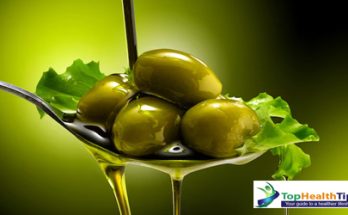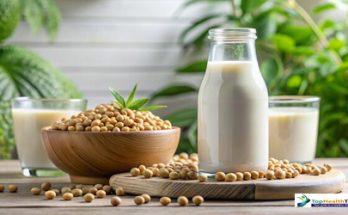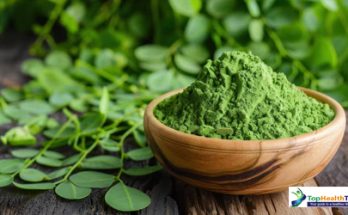Chia seeds, though small, pack an impressive nutritional punch. These tiny seeds have become a favorite among health enthusiasts for their wide range of health benefits. Derived from the Salvia hispanica plant, chia seeds have been consumed for centuries, originally used by the Aztecs and Mayans for energy and endurance. Today, chia seeds are recognized as a superfood, offering a wealth of nutrients and versatile uses.
What Makes Chia Seeds So Special?
Chia seeds are one of the most nutrient-dense foods on the planet, boasting an impressive profile that includes essential vitamins, minerals, and antioxidants. Whether you’re aiming to boost your energy, enhance digestion, or support heart health, chia seeds offer numerous benefits that are hard to ignore.
Nutritional Profile of Chia Seeds
Chia seeds are a rich source of:
- Omega-3 Fatty Acids: They contain more omega-3s than most plant-based foods, making them an excellent alternative to fish oil.
- Fiber: With about 10 grams of fiber per ounce, chia seeds aid in digestion and promote gut health.
- Protein: Chia seeds provide a plant-based source of protein, making them a great addition to vegetarian and vegan diets.
- Antioxidants: These powerful compounds help combat oxidative stress and reduce inflammation.
- Calcium, Magnesium, and Phosphorus: Essential minerals for bone health.
Here’s a nutritional composition of chia seeds based on USDA data (per 100 grams) along with the corresponding percentage of daily value (DV) based on a 2,000-calorie diet:
| Nutrient | Amount per 100g | % Daily Value (DV) |
|---|---|---|
| Calories | 486 kcal | 24% |
| Protein | 16.54 g | 33% |
| Total Fat | 30.74 g | 40% |
| Saturated Fat | 3.33 g | 17% |
| Polyunsaturated Fat | 23.67 g | – |
| Monounsaturated Fat | 2.31 g | – |
| Omega-3 (ALA) | 17.83 g | – |
| Total Carbohydrates | 42.12 g | 14% |
| Dietary Fiber | 34.4 g | 137% |
| Sugars | 0.0 g | 0% |
| Calcium | 631 mg | 49% |
| Iron | 7.72 mg | 43% |
| Magnesium | 335 mg | 84% |
| Phosphorus | 860 mg | 123% |
| Potassium | 407 mg | 9% |
| Zinc | 4.58 mg | 42% |
| Vitamin C | 1.6 mg | 2% |
| Thiamin (B1) | 0.62 mg | 52% |
| Riboflavin (B2) | 0.17 mg | 13% |
| Niacin (B3) | 8.83 mg | 55% |
| Folate | 49 mcg | 12% |
| Vitamin A | 54 IU | 1% |
| Vitamin E | 0.5 mg | 3% |

1. Boosts Heart Health
Chia seeds are renowned for their heart-protective properties. The high concentration of omega-3 fatty acids helps reduce bad cholesterol (LDL) and raise good cholesterol (HDL), which supports overall cardiovascular health. Omega-3s also lower blood pressure and inflammation, key factors in preventing heart disease.
- Reduces LDL cholesterol
- Lowers blood pressure
- Decreases inflammation
2. Aids in Weight Management
Thanks to their high fiber content, chia seeds can help you feel fuller for longer. This can reduce overall calorie intake and support weight management. The soluble fiber in chia seeds absorbs water, expanding in the stomach and creating a feeling of satiety.
- Promotes fullness
- Reduces appetite
- Helps control calorie intake
3. Improves Digestive Health
Chia seeds are packed with fiber, which plays a crucial role in supporting digestive health. The fiber adds bulk to stool, promoting regular bowel movements and preventing constipation. This fiber also serves as food for beneficial gut bacteria, supporting a healthy microbiome.
- Promotes regular bowel movements
- Supports a healthy gut microbiome
- Prevents constipation
4. Enhances Bone Health
Chia seeds are rich in calcium, magnesium, and phosphorus, all essential nutrients for maintaining strong bones. Just one ounce of chia seeds provides about 18% of the recommended daily intake (RDI) of calcium, making them a great option for those who avoid dairy.
- High in calcium
- Supports bone strength
- Helps prevent osteoporosis
5. Supports Blood Sugar Regulation
Chia seeds can help stabilize blood sugar levels due to their high fiber content. The soluble fiber slows down the digestion and absorption of carbohydrates, preventing spikes and crashes in blood sugar. This makes chia seeds beneficial for people with type 2 diabetes or those aiming to maintain steady energy levels throughout the day.
- Prevents blood sugar spikes
- Supports steady energy levels
- Beneficial for people with diabetes
6. Rich in Antioxidants
The antioxidants in chia seeds help protect the body from free radical damage. This not only reduces inflammation but also slows down the aging process and helps prevent chronic diseases such as cancer and heart disease.
- Fights free radicals
- Reduces inflammation
- Slows aging and supports longevity

7. Plant-Based Protein Source
For those following plant-based diets, chia seeds offer an excellent source of protein. While not a complete protein, they contain a good amount of essential amino acids, making them a valuable addition to vegan and vegetarian diets.
- High in plant-based protein
- Supports muscle repair and growth
- Ideal for vegan and vegetarian diets
How to Incorporate Chia Seeds into Your Diet
Chia seeds are incredibly versatile and can easily be added to your diet in various ways. Due to their neutral flavor, they can blend seamlessly into many dishes.
- Smoothies: Add a tablespoon of chia seeds to your favorite smoothie for an extra nutrient boost.
- Chia Pudding: Combine chia seeds with almond milk or yogurt and let them sit overnight to create a delicious, pudding-like consistency.
- Baking: Substitute chia seeds for eggs in baking recipes. Simply mix one tablespoon of chia seeds with three tablespoons of water to create a chia “egg.”
- Salad Toppings: Sprinkle chia seeds on top of salads for added crunch and nutrition.
- Energy Bars: Include chia seeds in homemade energy bars for a quick snack packed with protein and fiber.
Chia Seeds and Hydration: A Unique Benefit
One of the unique properties of chia seeds is their ability to absorb water—up to 12 times their weight! When soaked in liquid, chia seeds form a gel-like substance, which can help with hydration and provide a slow release of energy over time. Athletes and endurance trainers often use chia seeds for this reason, as the gel can keep them hydrated during long workouts.
- Aids hydration
- Provides sustained energy
- Popular among athletes
Chia Seed Safety and Considerations
While chia seeds are generally safe for most people, it’s important to consume them in moderation. Due to their high fiber content, eating too many chia seeds at once can cause digestive discomfort, such as bloating or gas. Start with a small amount and gradually increase your intake to allow your body to adjust.
Chia Seeds: A Sustainable Superfood
Chia seeds are not only beneficial for your health, but they are also an environmentally friendly food source. Chia plants are hardy and require minimal water compared to other crops, making them a sustainable choice for conscious consumers. By incorporating chia seeds into your diet, you’re not just improving your health—you’re also supporting the planet.
Conclusion:
Chia seeds offer an impressive array of health benefits, from supporting heart and digestive health to aiding in weight management and providing a plant-based source of protein. Their versatility and ease of use make them an ideal addition to any diet. Whether you sprinkle them on salads, blend them into smoothies, or make a delicious chia pudding, these tiny seeds can have a big impact on your overall well-being.
Related post for Nutrition & Food>>>
References:
- Ullah, R., Nadeem, M., & Khalique, A. (2016). Nutritional and therapeutic perspectives of Chia (Salvia hispanica L.): A review. Journal of Food Science and Technology, 53(4), 1750–1758. doi:10.1007/s13197-015-1967-0
- DiNicolantonio, J. J., & O’Keefe, J. H. (2018). Chia Seeds: Health Benefits and Considerations. Journal of the American College of Nutrition, 37(2), 116-119. doi:10.1080/07315724.2017.1360762
- Marineli, R. D. S., Moraes, É. A., Lenquiste, S. A., Godoy, A. T., & Eberlin, M. N. (2014). Chemical characterization and antioxidant potential of Chilean chia seeds and oil (Salvia hispanica L.). LWT-Food Science and Technology, 59(2), 1304-1310. doi:10.1016/j.lwt.2014.03.019
- Porras-Loaiza, P., et al. (2014). Chia (Salvia hispanica L.) seed’s contribution to the formulation of functional foods. Journal of Food Science and Technology, 51(3), 2268-2274. doi:10.1007/s13197-012-0743-2
- Coorey, R., Tjoe, A., & Jayasena, V. (2014). Gelling properties of chia seed and flour. Journal of Food Science, 79(5), E859-E866. doi:10.1111/1750-3841.12444




